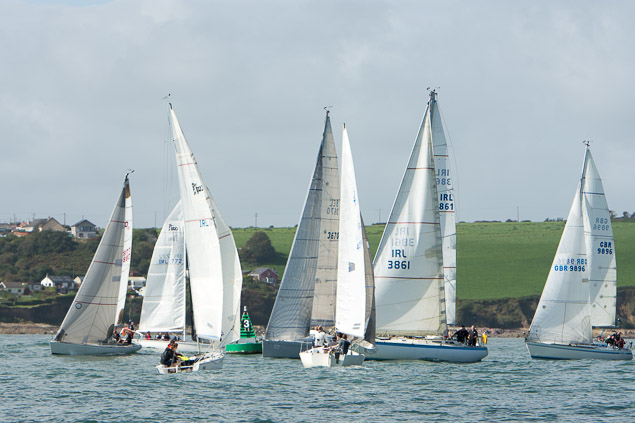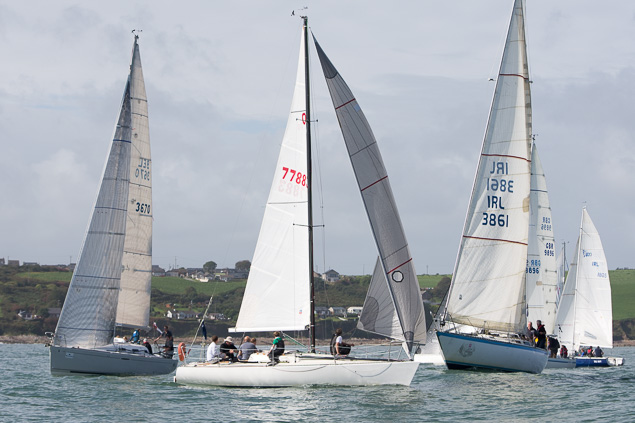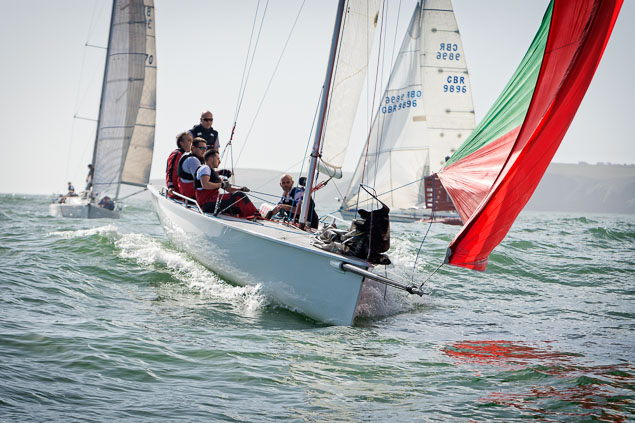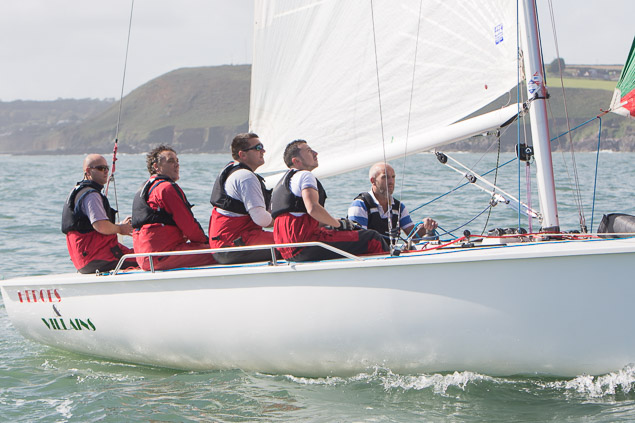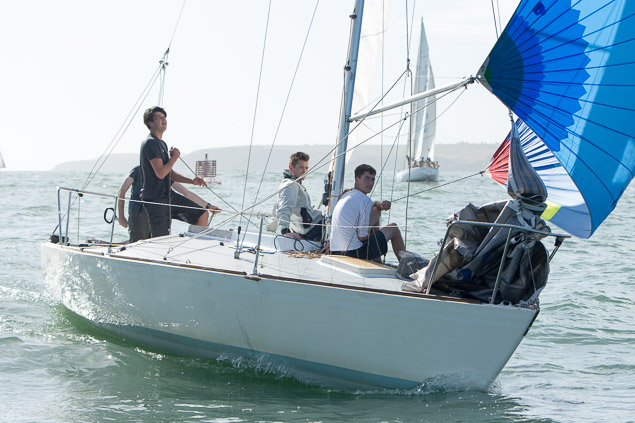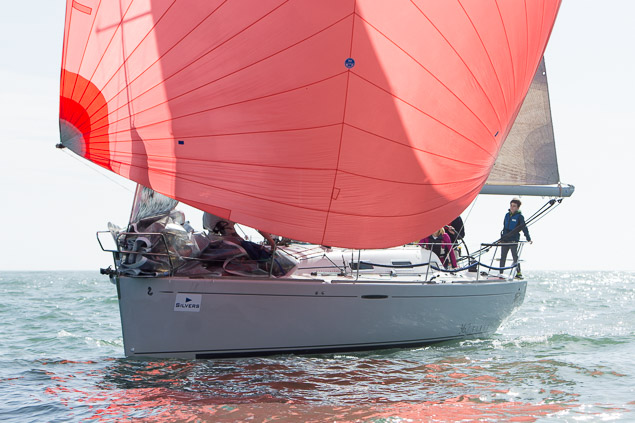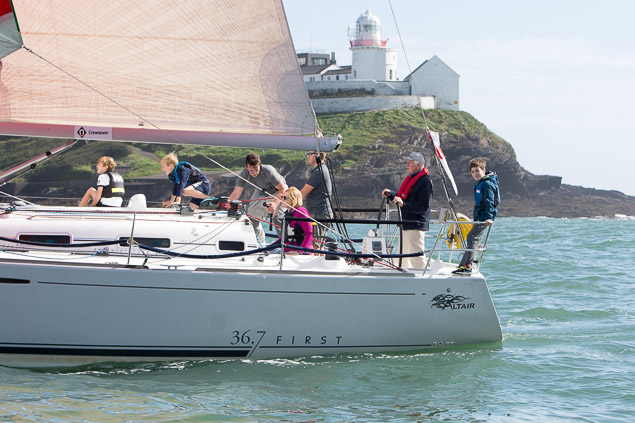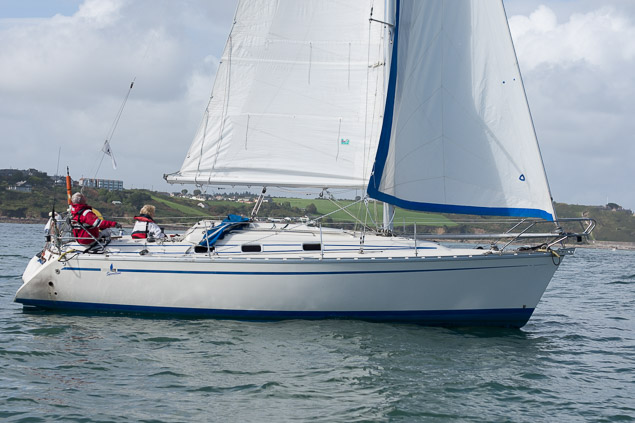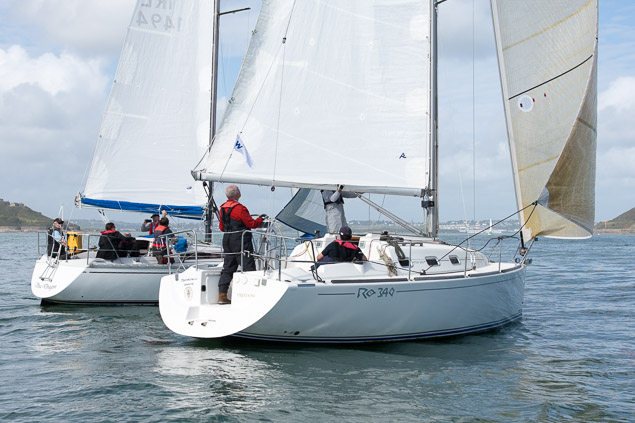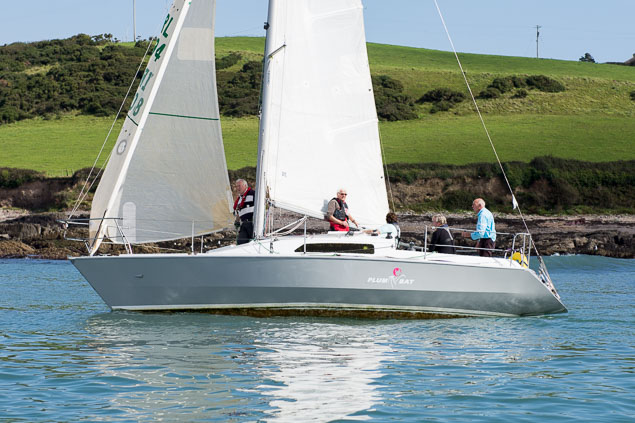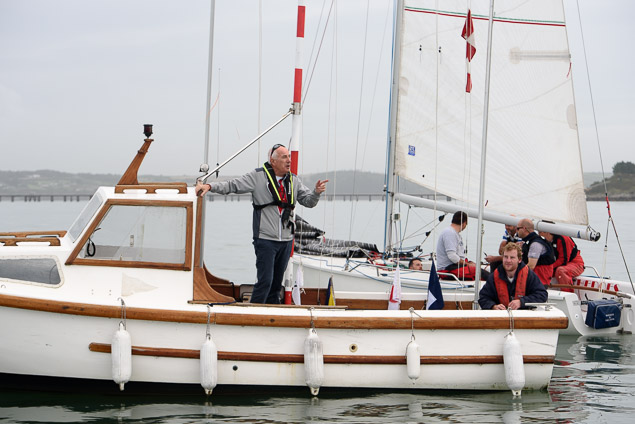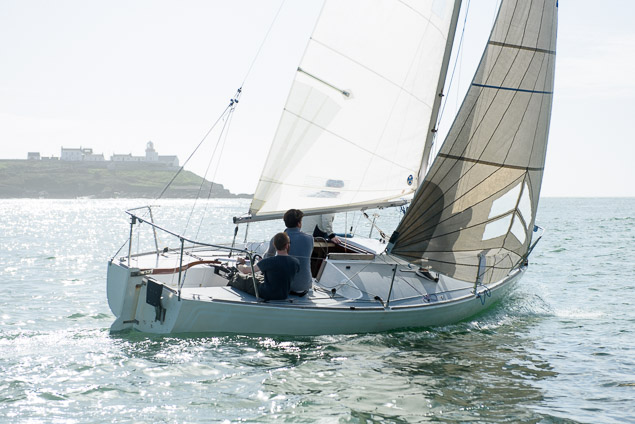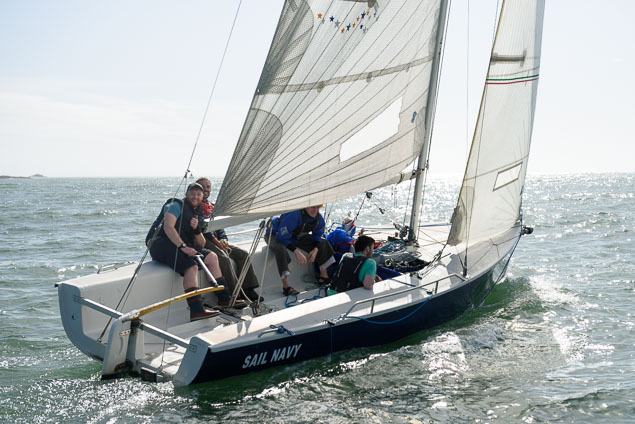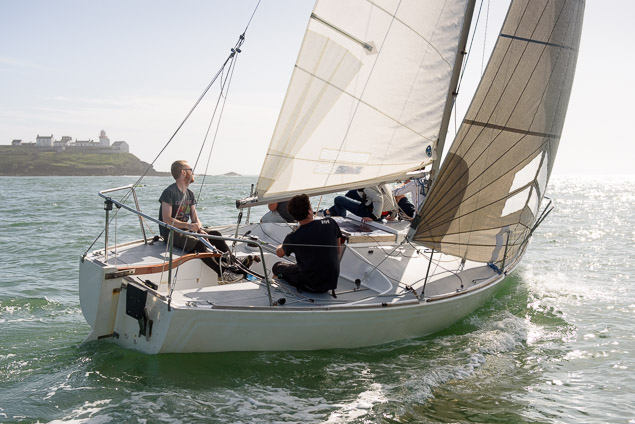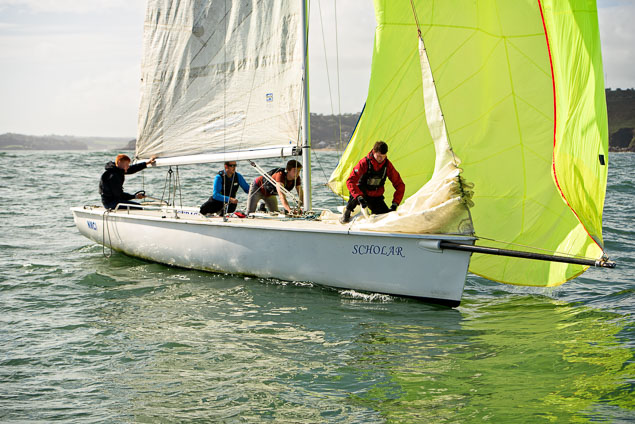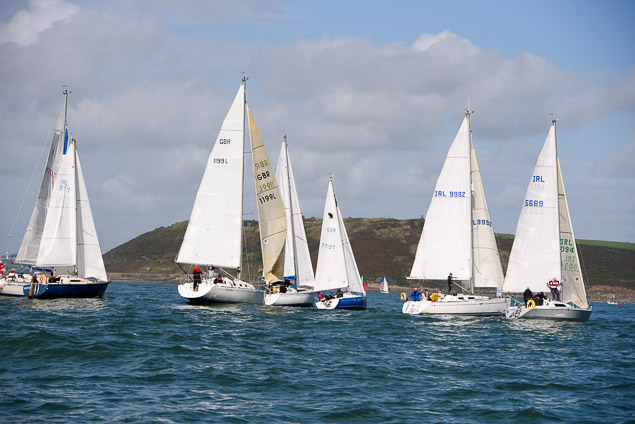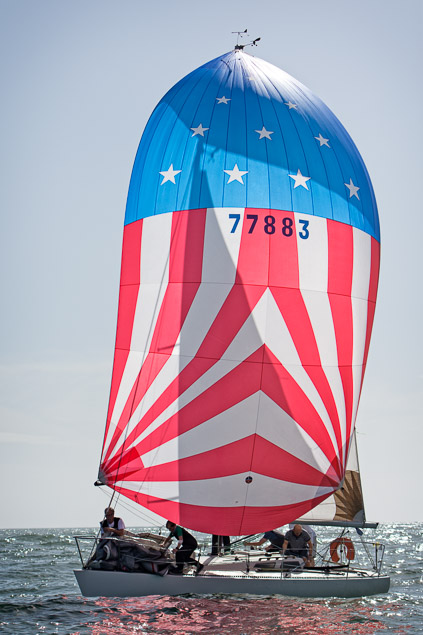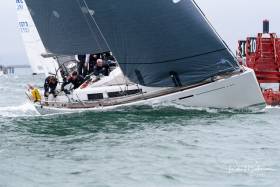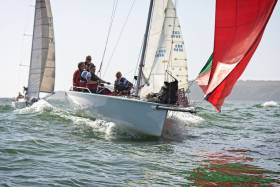Displaying items by tag: Naval Race
'Jelly Baby' and 'Cavatina' are Royal Cork Yacht Club Naval Race Winners
The Royal Cork Yacht Club held its annual Naval Race on a windy day in Cork Harbour, bringing together a fleet of 16 boats.
The race course started with a grassy start, followed by a run to the south of Trabolgan and a beat back, leaving No.3 to port and upriver to finish between the flagstaff on the Naval Base at Haulbowline and No.20 buoy.
 The start of the 2023 Royal Cork Yacht Club annual Naval Race off Grassy Point in Cork Harbour Photo: Bob Bateman
The start of the 2023 Royal Cork Yacht Club annual Naval Race off Grassy Point in Cork Harbour Photo: Bob Bateman
The cold northeast air throughout the race starkly contrasted the previous weekend's 30-degree temperatures and light airs.
 The J122 Jelly Baby was the winner of the 2023 Royal Cork Yacht Club annual Naval Race in Cork Harbour Photo: Bob Bateman
The J122 Jelly Baby was the winner of the 2023 Royal Cork Yacht Club annual Naval Race in Cork Harbour Photo: Bob Bateman
In the Naval Race IRC Spinnaker division, Jelly Baby (Jones Family), the newly crowned ICRA National Champion, emerged as the winner of the six-boat division. Annamarie and Denis Murphy's Grand Soliel 40, Nieulargo, secured second position, followed by Paul and Deirdre Tingle's X4 Alpaca in third.
Ian Hickey's Granada 38, Cavatia, emerged as the winner in IRC White Sails, with Ronan Twomey's First 40.7, Rosmarina, securing second position, and Kieran O'Brien's Magnet finishing third.
 Ronan Twomey's First 40.7, Rosmarina was second in the White Sails division of the 2023 Royal Cork Yacht Club annual Naval Race in Cork Harbour Photo: Bob Bateman
Ronan Twomey's First 40.7, Rosmarina was second in the White Sails division of the 2023 Royal Cork Yacht Club annual Naval Race in Cork Harbour Photo: Bob Bateman
The 16-knot breeze throughout the race made for a thrilling sail, and commendations were awarded to the winners in both divisions for their performances.
Royal Cork Yacht Club Naval Race 2023 Photo Gallery by Bob Bateman
Two Days of Royal Cork Yacht Racing in Cork Harbour Celebrates 75 Years of the Irish Navy
Celebrations of 75 years of the Irish Navy continued in Cork Harbour this afternoon with the annual Naval Race run under the burgee of the Royal Cork Yacht Club.
It followed yesterday's successful Cobh to Blackrock race organised by Cove Sailing Club as Afloat reported here.
The Naval Race was started at Weavers Point on a line between the RCYC starting hut and the LE William Butler Yeats that stood off Roches Point to provide a transit.
The Race Officer was RCYC's Rear Admiral Keelboats Daragh Connolly who set the competing yachts a course that took in Ringabella, the Harp mark and a spinnaker run.
The patrol vessel's horn was used as a starting sound signal.
In the IRC spinnaker division, Denis and Annamarie Murphy's Nieulargo was first and Tom and Cormac MacSweeney's Scribbler II second. Full results are here
 Commodore Michael Malone Flag Officer commanding the Naval Service presents the winning Trophy to Denis Murphy of "Nieulargo" watched by Colin Morehead Admiral Royal Cork Yacht Club Photo: Bob Bateman
Commodore Michael Malone Flag Officer commanding the Naval Service presents the winning Trophy to Denis Murphy of "Nieulargo" watched by Colin Morehead Admiral Royal Cork Yacht Club Photo: Bob Bateman
Cork Harbour Fleet Enjoy Brisk Conditions for Royal Cork's Naval Race
Yesterday's Combined Clubs September Sailing Events in Cork Harbour saw Royal Cork Yacht Club stage the annual Naval Race writes Bob Bateman
A 16-knot southerly wind allowed RCYC Race Officer Peter Webster set a course east of No.11 buoy to send the fleet on a beat out to the mouth of the harbour to no. 3 buoy.
The fleet enjoyed a run back into the Harbour, a turn to port up the Cobh Roads before finishing off Haulbowline at the Naval Base.
See Bob Bateman Photo Gallery Below
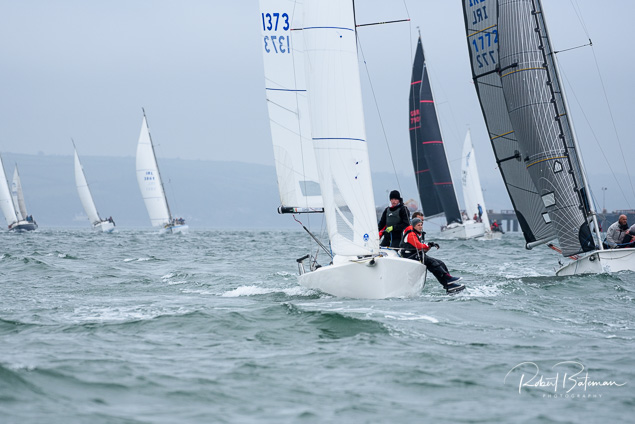
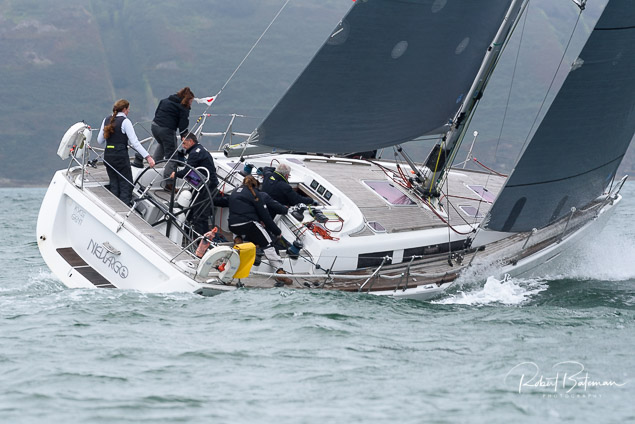
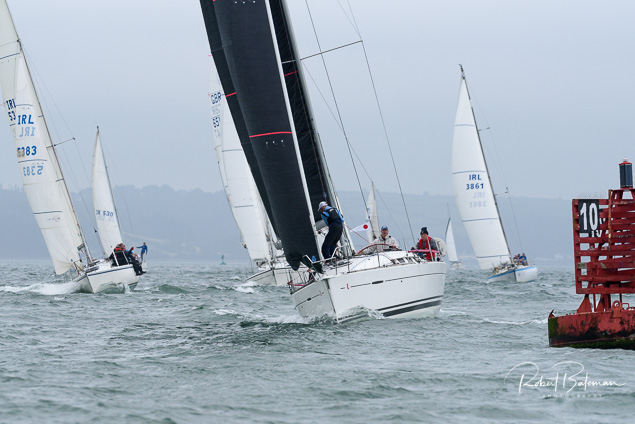
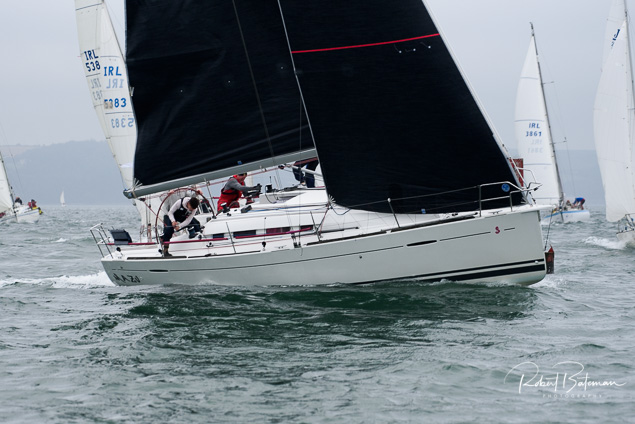
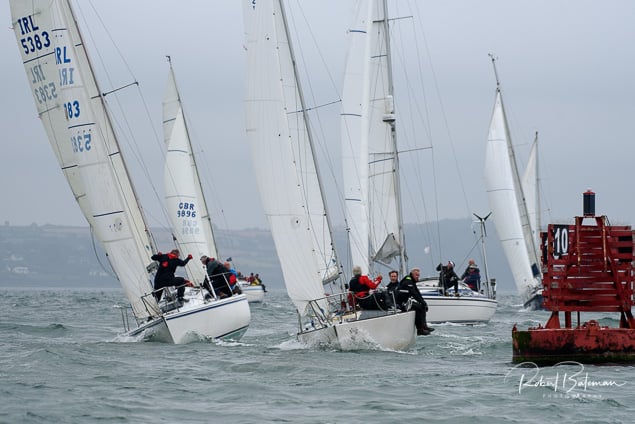
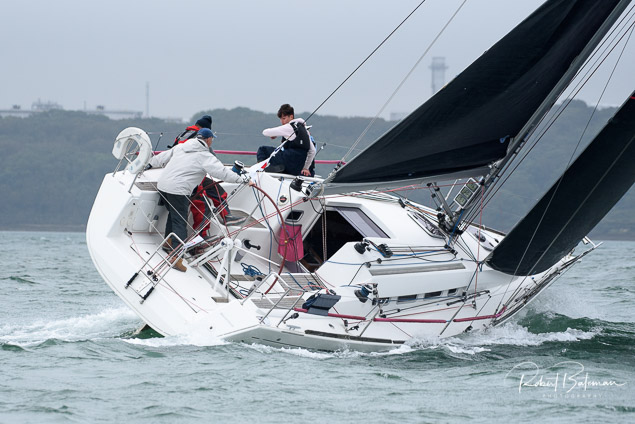
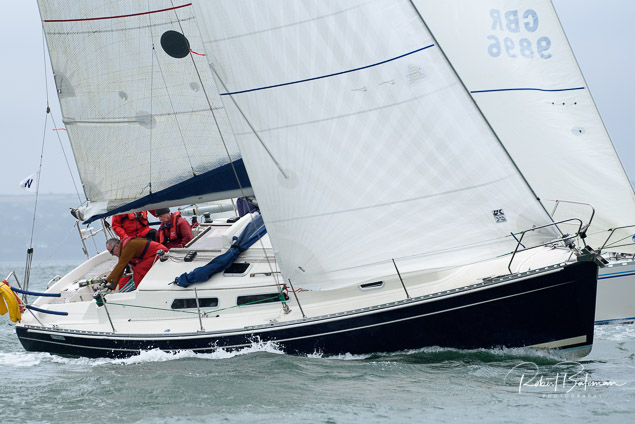
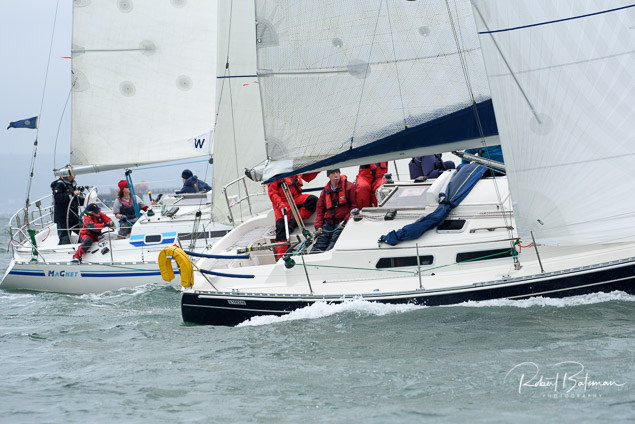
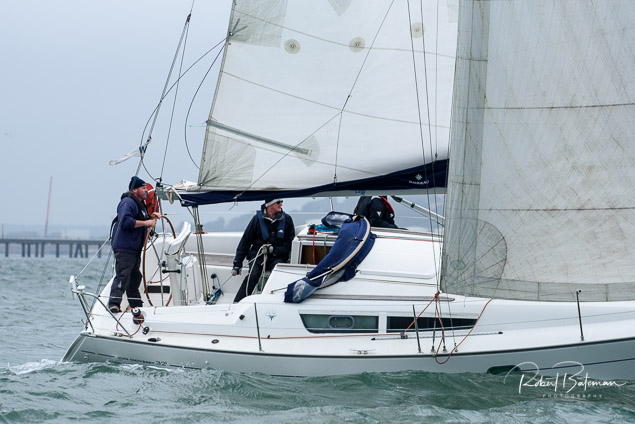
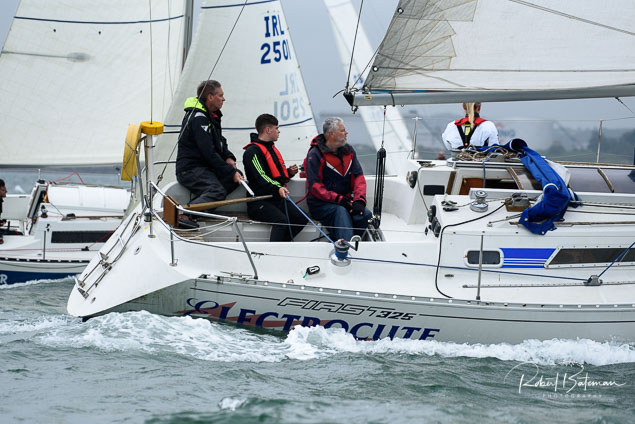
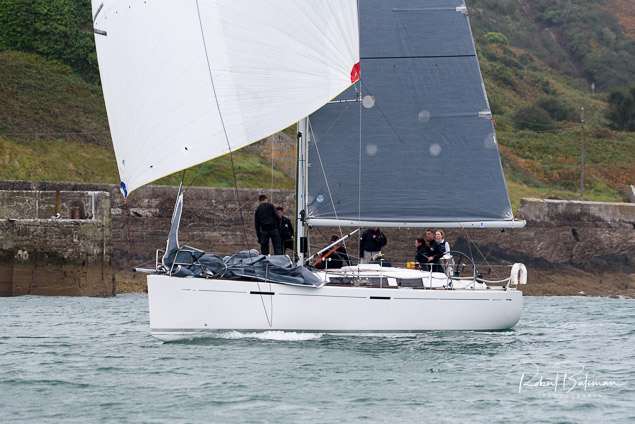
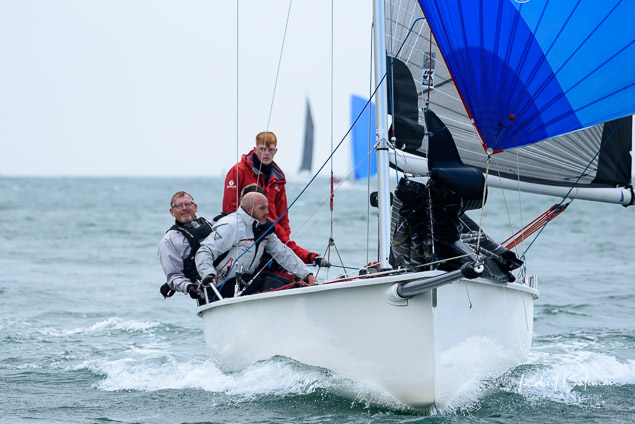
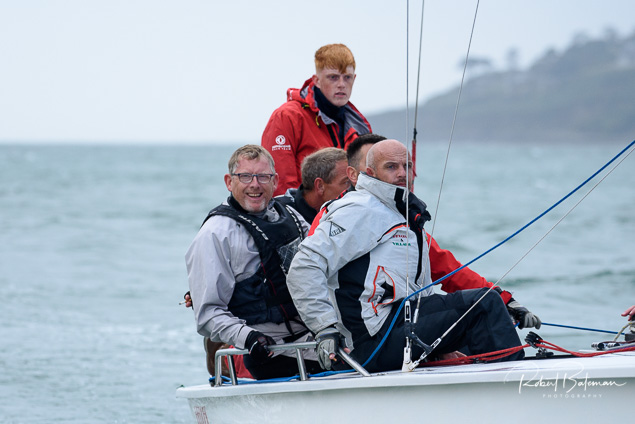
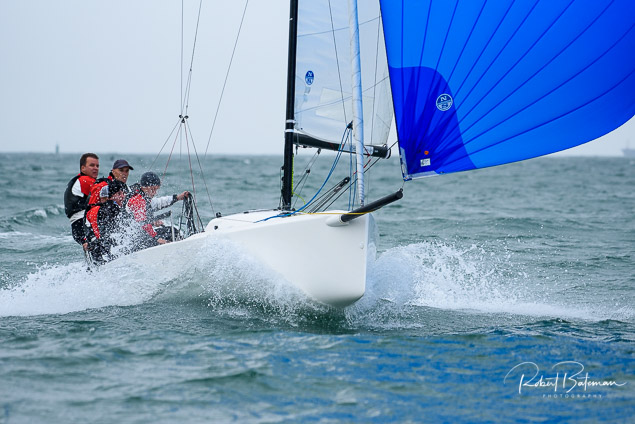
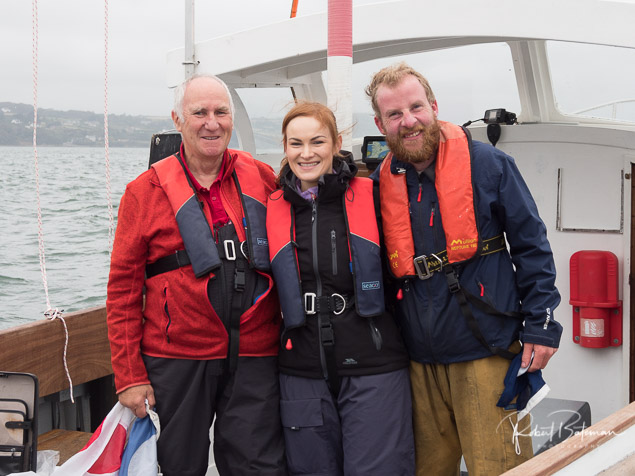
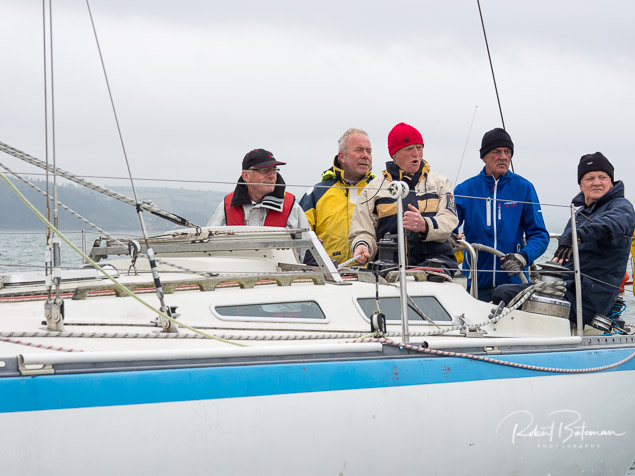
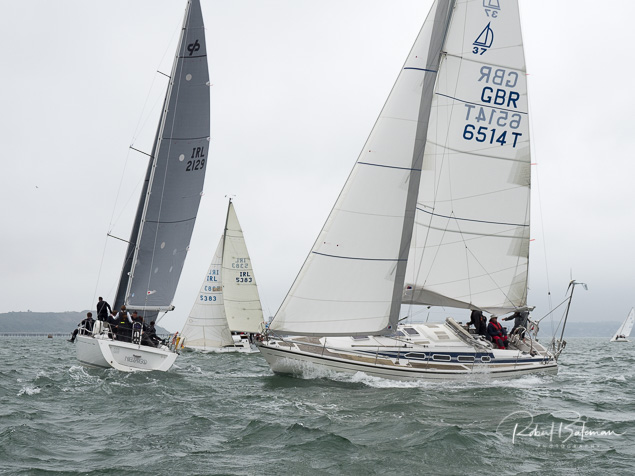
MG335 'Magnet' Wins Naval Race in Cork Harbour
Kieran & Liz O'Brien's MG335 Magnet was the IRC all–in winner of Cork Harbour's Naval Race on Sunday. White Sails IRC was Pat Barrett/Roy Hanan's Plumbat writes Bob Bateman.
As well as a race in itself this year's 15-boat Naval Race formed one of the fixtures in the Cork Harbour sailing co–operation between Monkstown Bay Sailing Club, Cove Sailing Club and Royal Cork Yacht Club. The race was dealyed by a day due to strong winds on Saturday.
The start line was between the Committee Boat and Number 3 buoy. Classes 1, 2 and 3 were sent out to E2 off Roches Point back via Corkbeg to port taking 13 to port and a finish at the Naval Base for well–earned refreshments.
The White Sail fleet had a shorter beat but sailed the same course to the finish. A turning Spring tide carried the fleet into the harbour at 3pm.
